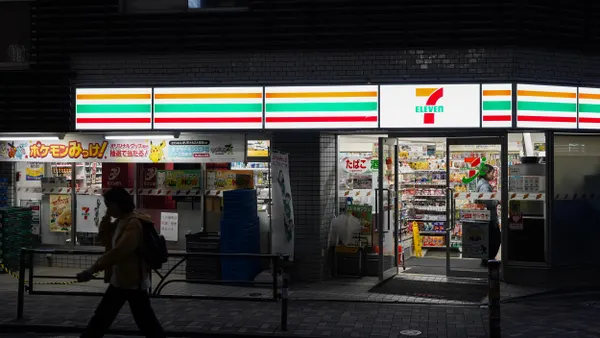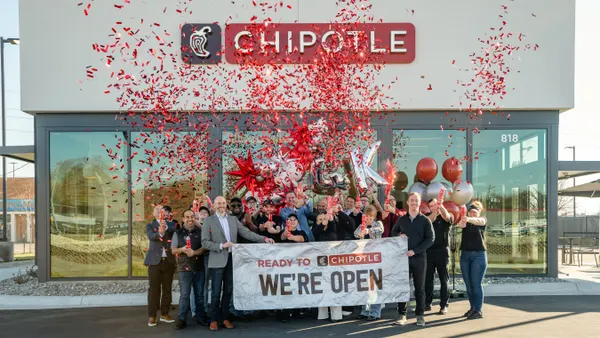Dive Brief:
- Tech startup HDScores launched a subscription application allowing users to view health ratings for over 1 million businesses, including restaurants, coffee shops and drive-thrus, according to a press release. Since 2012, the company has found 28 million reported health violations.
- HDScores uses an algorithm that reviews public health information such as violations, repeat offenses and historical scores to provide an overall score from zero to 100%, according to Skift Table. The closer to 100%, the cleaner the restaurant, and users can select restaurants they want to follow on the app to get updates on their latest inspection score.
- The company developed and tested its database for six years, partnering with Yelp during the last two years to enhance the overall dining experience. Since 2012, the company has found 28 million reported health violations.
Dive Insight:
Following several high-profile food safety failures across restaurant brands, food safety and cleanliness are increasingly becoming an important deciding factor for whether or not consumers dine at a particular establishment. Beyond damaging a brand's reputation, food-borne illnesses can also cost restaurants thousands if not millions and possibly lead to closure.
Visible scores or letter grades can help restaurants improve their operations. Salmonella infections dropped 5% in New York City in the years following the implementation of letter grades.
But using data from a local health department isn't always accurate, and some restaurants can be stuck with a low health grade due to computer glitches — impacting an overall health score, according to Skift Table. Restaurants associations criticized Yelp’s integration with HDScores in July, saying that restaurants could also be stuck with a low score long after a violation or issue was addressed.
Negative health ratings can have financial implications for restaurants as well. A poor health grade on Yelp can lead to a 12% dip in sales, and as much as 21% for significant violations, according to a Harvard study.
Whether or not having health scores are good for restaurants, diners appear to be interested in the concept. Soon after HDScores' started to appear on Yelp, it generated significant media attention, providing plenty of reasons for the company to complete its long-term goal of launching its own app.
HDScores COO Glynne Townsend told Skift Table that the company chose to do a subscription model, which costs $1.99 monthly or $11.99 annually, because an ad-based model could create conflicts of interest since ads would most likely come from the very restaurants the app would be scoring. Given previous criticism, this could help the app remain neutral.











